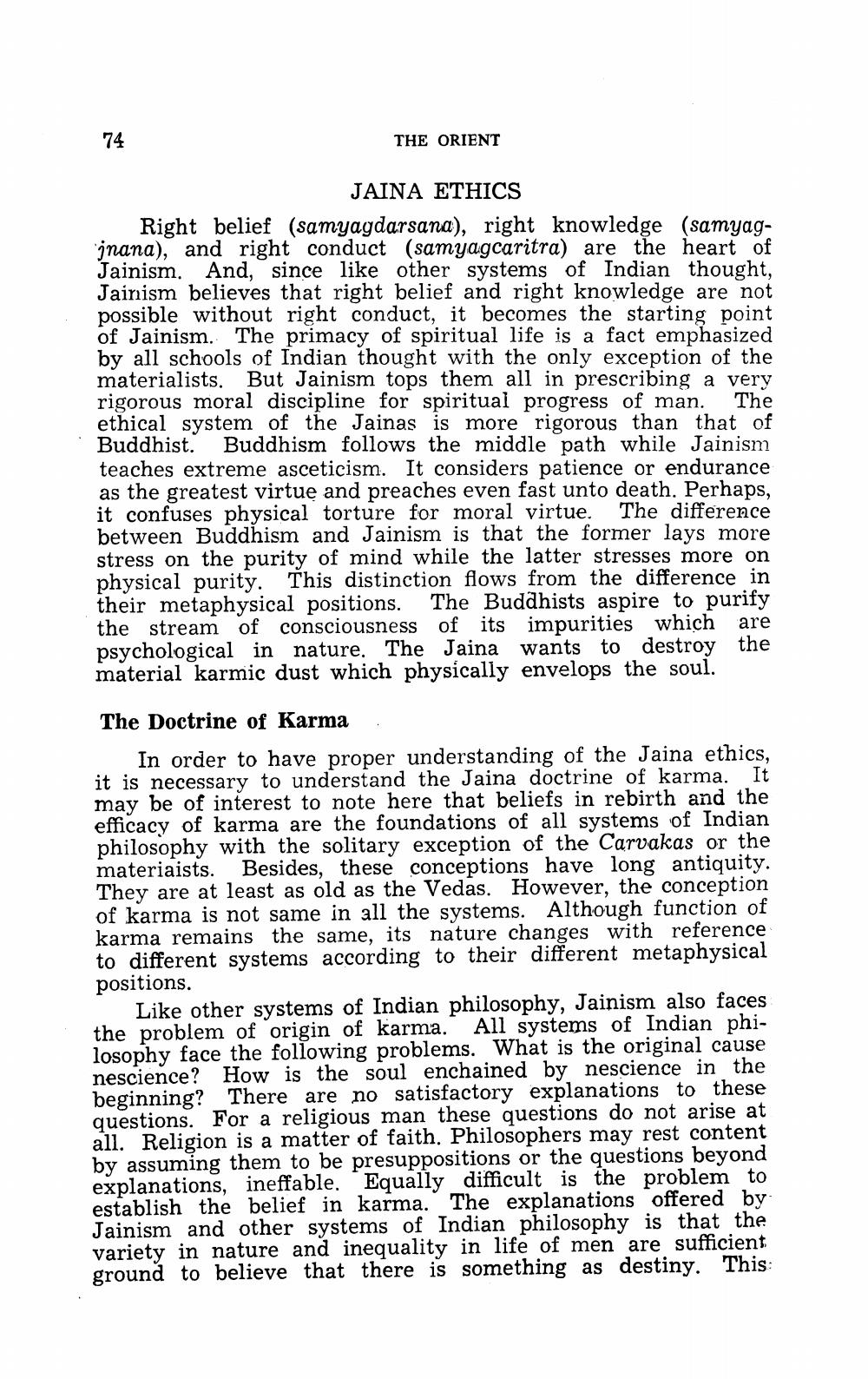________________
74
THE ORIENT
JAINA ETHICS
Right belief (samyagdarsana), right knowledge (samyagjnana), and right conduct (samyagcaritra) are the heart of Jainism. And, since like other systems of Indian thought, Jainism believes that right belief and right knowledge are not possible without right conduct, it becomes the starting point of Jainism. The primacy of spiritual life is a fact emphasized by all schools of Indian thought with the only exception of the materialists. But Jainism tops them all in prescribing a very rigorous moral discipline for spiritual progress of man. The ethical system of the Jainas is more rigorous than that of Buddhist. Buddhism follows the middle path while Jainism teaches extreme asceticism. It considers patience or endurance as the greatest virtue and preaches even fast unto death. Perhaps, it confuses physical torture for moral virtue. The difference between Buddhism and Jainism is that the former lays more stress on the purity of mind while the latter stresses more on physical purity. This distinction flows from the difference in their metaphysical positions. The Buddhists aspire to purify the stream of consciousness of its impurities which psychological in nature. The Jaina wants to destroy the material karmic dust which physically envelops the soul.
are
The Doctrine of Karma
In order to have proper understanding of the Jaina ethics, It it is necessary to understand the Jaina doctrine of karma. may be of interest to note here that beliefs in rebirth and the efficacy of karma are the foundations of all systems of Indian philosophy with the solitary exception of the Carvakas or the materiaists. Besides, these conceptions have long antiquity. They are at least as old as the Vedas. However, the conception of karma is not same in all the systems. Although function of karma remains the same, its nature changes with reference to different systems according to their different metaphysical positions.
Like other systems of Indian philosophy, Jainism also faces the problem of origin of karma. All systems of Indian philosophy face the following problems. What is the original cause nescience? How is the soul enchained by nescience in the beginning? There are no satisfactory explanations to these questions. For a religious man these questions do not arise at all. Religion is a matter of faith. Philosophers may rest content by assuming them to be presuppositions or the questions beyond explanations, ineffable. Equally difficult is the problem to establish the belief in karma. The explanations offered by Jainism and other systems of Indian philosophy is that the variety in nature and inequality in life of men are sufficient ground to believe that there is something as destiny. This:




